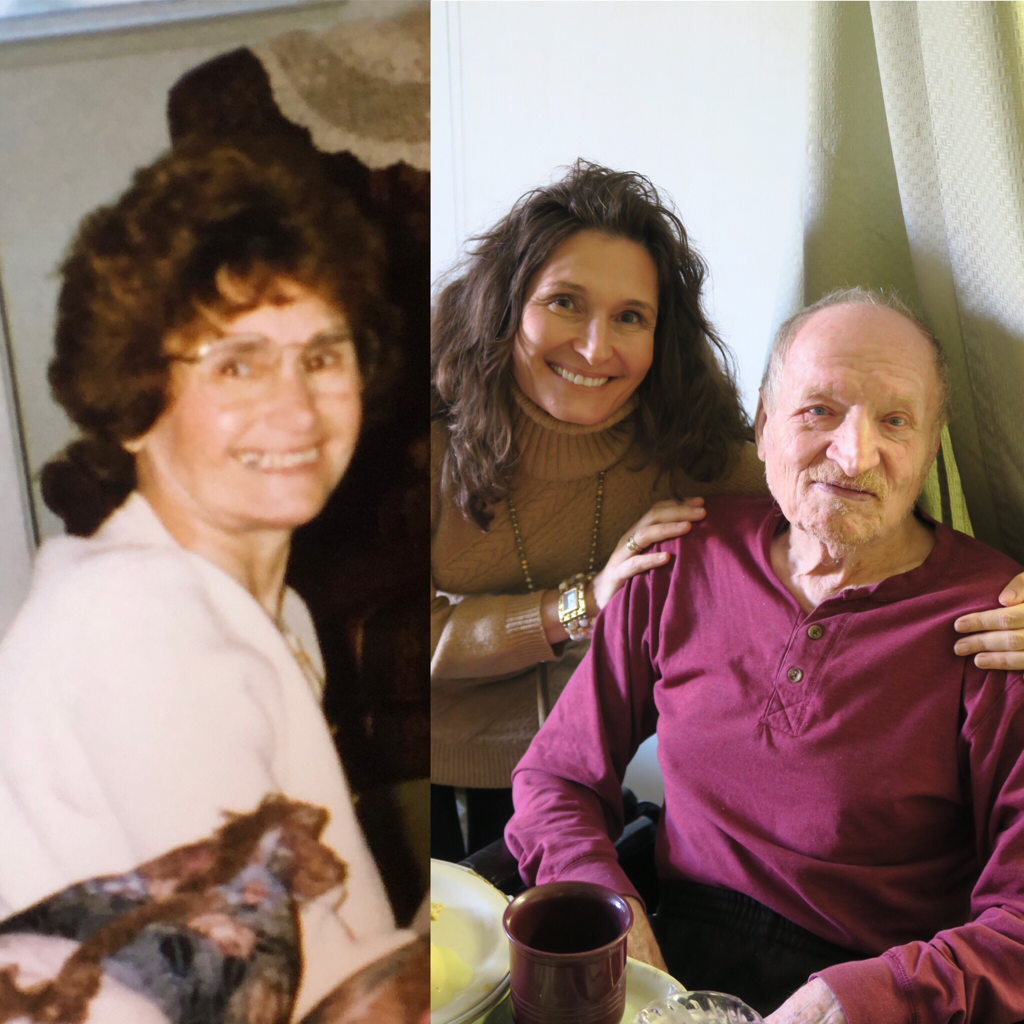|
Dr. Sue Johnson is an author, clinical psychologist, researcher, professor, and a leading innovator in the field of couple therapy and adult attachment. Sue is the author of the 2008 bestseller Hold Me Tight: Seven Conversations for a Lifetime of Love. Her latest book for professionals is Attachment Theory in Practice (2019).
She is the founding director of the International Centre for Excellence in Emotionally Focused Therapy (ICEEFT). She spends much of the year training therapists in EFT around the world, and also holds positions at the University of Ottawa, Alliant University (San Diego), and the University of British Columbia. She lives in Victoria, British Columbia. Check out the article here.
0 Comments
Have you ever met someone who is extremely and naturally happy and thankful? I have. And, I often think they are amazing. It is like they were born with an extra large gratitude muscle. They are like my cat, Lydia, the eternal optimist. No matter how grouchy my older cat gets around her she manages to keep on purring and purring.
Looking around for some research I found that some people may be more prone to be naturally grateful because of certain genetic factors. Okay. So, what about the rest of us who struggle to see the silver lining in everything? Well, there is good news for us. We can learn this skill! Just like yoga it may be an intentional practice at first. But, if we practice it regularly can have lasting effects (just like yoga) like noting positive things around us more naturally. Yup. Just writing down three things you are thankful for daily for a period of time can get the ball rolling. Try it. You may be pleasantly surprised. One thing, if I understand the literature and research correctly, is that you truly have to be grateful and have that thankful feeling inside of you when you put something on your list. It can’t just be a rote exercise. So, I suggest listing things you easily and truly can be thankful for and see what happens. Den and Naomi interview and welcome New York Times Bestselling author Dr. Emily Nagoski, expert on women's sexual wellbeing. Using warmth and humor, she covers everything women need to know--from the impact of stress on women's health and well-being to modern day romance novels to the importance of bringing joy and pleasure to our lives. PODCAST
Why Am I So Anxious?
Every human feels anxiety on occasion; it is a part of life. All of us know what it is like to feel worry, nervousness, fear, and concern. We feel nervous when we have to give a speech, go for a job interview, or walk into our boss’s office for the annual performance appraisal. We know it’s normal to feel a surge of fear when we unexpectedly see a photo of a snake or look down from the top of a tall building. Most of us manage these kinds of anxious feelings fairly well and are able to carry on with our lives without much difficulty. These feelings don’t disrupt our lives. But millions of people (an estimated 15% of the population) suffer from devastating and constant anxiety that severely affects their lives, sometimes resulting in living in highly restricted ways. These people experience panic attacks, phobias, extreme shyness, obsessive thoughts, and compulsive behaviors. The feeling of anxiety is a constant and dominating force that disrupts their lives. Some become prisoners in their own homes, unable to leave to work, drive, or visit the grocery store. For these people, anxiety is much more than just an occasional wave of apprehension. Types of Anxiety Disorders An anxiety disorder affects a person’s behavior, thoughts, feelings, and physical sensations. The most common anxiety disorders include the following: Social anxiety or social phobia is a fear of being around other people. People who suffer from this disorder always feel self-conscious around others. They have the feeling that everyone is watching them and staring at them, being critical in some way. Because the anxiety is so painful, they learn to stay away from social situations and avoid other people. Some eventually need to be alone at all times, in a room with the door closed. The feeling is pervasive and constant and even happens with people they know. People who have social anxiety know that their thoughts and fears are not rational. They are aware that others are not actually judging or evaluating them at every moment. But this knowledge does not make the feelings disappear Panic disorder is a condition where a person has panic attacks without warning. According to the National Institutes of Mental Health, about 5% of the adult American population suffers from panic attacks. Some experts say that this number is actually higher, since many people experience panic attacks but never receive treatment. Common symptoms of panic include: • Racing or pounding heart • Trembling • Sweaty palms • Feelings of terror There are three basic ways to treat depression: psychotherapy, self help, and medication. Many people respond best to a combination of two or more methods.
1. Psychotherapy: Individual treatment exploring one’s beliefs and ways of thinking and relating, and learning new ways of thinking, relating, and behaving. Family and couples therapy are very helpful, especially if one's relationships are affecting one's mood or one's mood is starting affect one's relationships. Relationships matter and the support of family and friends is essential for recovery. Depression often causes isolation, which tends to feed the depression and make it worse. Relief can come through connecting with others. Couple or family therapy can help with this by promoting connection. 2. Self-help: Exploring one’s beliefs and ways of thinking on one’s own. 3. Medication: Altering one’s brain chemistry by taking antidepressant medication. A physician may recommend medication when four conditions exist: 1. The patient’s depression is moderate to severe. 2. The patient has suffered at least one previous depressive episodes. 3. There is a family history of depression. 4. The patient asks for medication only and refuses psychotherapy. There are four types of antidepressant medication available today: • Tricyclic antidepressants (TCAs) • Monoamine oxidase inhibitors (MAOIs) • Selective serotonin reuptake inhibitors (SSRIs) • Other compounds that work with dopamine, and norepinephrine The TCAs and MAOIs have been used for decades. The SSRIs (such as Prozac) and structurally unrelated compounds are newer and are being prescribed more and more frequently. They have fewer and less pronounced side effects than the TCAs and MAOIs. Treatment without Medicine One of the leading methods for treating depression is cognitive therapy. Cognitive therapists help depressed clients feel better by identifying how faulty ways of thinking are making him or her feel bad. The client analyzes his or her thoughts and beliefs, and learns to substitute more healthy ways of thinking and believing. Many mental health professionals believe that the ideal treatment of clinical depression is medication in conjunction with psychotherapy. Meditation and yoga have been found helpful. Emotionally Focused Therapy may also help. Prevention of Depression 1. Identify your risk factors and be aware of where you are vulnerable. Each of us has unique risk factors, such as things we were taught in our families of origin, values we have learned, and the presence or absence of a family history of depression. Anything that has been learned can be unlearned and replaced with something healthier. 2. Learn to manage stress. You can learn proven techniques for calming and relaxing yourself. Consider taking a stress management class or buying a set of relaxation tapes. 3. Learn problem-solving skills. Many people who develop depression never learned problem-solving skills. They need to develop the ability to see problems from many viewpoints and to look for a variety of solutions. 4. Build your life around things you can control. Learn to recognize what you can control and what you can’t. Avoid spending much effort on situations that won’t pay off for you. 5. Learn self-acceptance. Instead of rejecting the parts of yourself you don’t like, learn to manage them more productively. 6. Become aware of selective perception. Observe how you generate ideas and opinions about people and events. Remember that these are just your views, not necessarily objective facts. 7. Focus on the future, not the past. Depressed people tend to be focused on the past. People who set goals and focus on the future tend to be more positive about life. 8. Develop a sense of purpose. Many depressed people lack a sense of purpose or meaning. This means they have no goals and nothing in the future drawing them forward. To prevent depression, develop your sense of purpose and meaning. 9. Strengthen your emotional boundaries and set limits. Boundaries define your role in a social situation. They determine how you will or won’t behave in a given situation. Having clear, strong boundaries is empowering, while boundary violations make you feel victimized and helpless. Setting limits means having and enforcing rules for the behaviors you expect in a relationship. 10. Build positive and healthy relationships. Think about what you need from others in relationships. Learn to read people and trust your instincts about which people are good for you. 11. Avoid isolation. Talk to others about what’s going on with you. If you keep your thoughts to yourself, you may be unaware that your thoughts are distorted. If you share them with another person, you can become more objective. Suggested Reading David D. Burns, M.D., Feeling Good: The New Mood Therapy. New York, Avon Books, 1980. Michael Yapko, Ph.D., Breaking the Patterns of Depression. New York, Doubleday, 1997. Depression: What is it? Depression is a serous illness, not a harmless part of life. It is a complex disorder with a variety of causes. It is rarely caused by just one thing. It may be a result of a mix of factors, including genetic, chemical, physical, and sociological. It is also influenced by behavior patterns learned in the family and by cognitive distortions. Depression affects millions of people in this country. It is always troubling, and for some people it can be disabling. Depression is more than just sadness or “the blues.” It can have an impact on nearly every aspect of a person’s life. People who suffer from depression may experience despair and worthlessness, and this can have an enormous impact on both personal and professional relationships. In this newsletter, I will describe many of the factors that may cause depression, and I will explore strategies for preventing it. Depression Affects the Entire Person When a person suffers from depression, it can affect every part of his or her life, including one’s physical body, one’s behavior, thought processes, mood, ability to relate to others, and general lifestyle. Symptoms of Depression People who are diagnosed with clinical depression have a combination of symptoms from the following list: Feelings of hopelessness Fatigue or low energy Much less interest or pleasure in most life Low self-esteem Feeling worthless Excessive or inappropriate guilt Lessened ability to think or concentrate Indecisiveness Thinking distorted thoughts Having an unrealistic view of life Weight loss or gain without dieting Change in appetite Change in sleeping patterns Recurrent thoughts of death Suicidal thoughts A specific plan for committing suicide A suicide attempt Feelings of restlessness or being slowed down When a person is suffering from depression, these symptoms cause significant distress or impairment in social, occupational, or other important areas of functioning. This means that the person’s family and social relationships, as well as work life, are impaired. Grief, Sadness, and Depression Depression may include feelings of sadness, but it is not the same as sadness. Depression lasts much longer than sadness. While depression involves a loss of self-esteem, grief, disappointment and sadness do not. People who are depressed function less productively. People who are sad or disappointed continue to function. Depression and Socioeconomic Factors Depression does not seem to be related to ethnicity, education, income, or marital status. It strikes slightly more women than men. Some researchers believe that depression strikes more often in women who have a history of emotional and sexual abuse, economic deprivation, or are dependent on others. There seems to be a genetic link as depression is more common among parents, children, and siblings of people who are diagnosed with depression. Physical Causes Many physicians believe that depression results from a chemical imbalance in the brain. They often prescribe antidepressant medication that target specific neurotransmitters. Many people find relief as a result. However, at this point in time there is no reliable test to identify chemical imbalances. It is unknown whether life experiences cause mood changes, which create changes in brain chemistry, or whether it works in reverse. There is some evidence that stress and biological vulnerability work together to create depression. Depression may be associated with physical events such as other diseases, physical trauma, and hormonal changes. A person who is depressed should always have a physical examination as part of the assessment process to determine the role of physical causes. Signs That Professional Treatment Is Needed If you or someone you know is depressed and exhibits any of the following signs, it is extremely important to seek the assistance of a medical or mental health professional. 1.Thinking about death or suicide. This is always dangerous and you should see a professional therapist immediately. 2.When symptoms of depression continue for a long time, you may need professional help. Acute responses to events are normal, but they should not last beyond a reasonable time. 3.Your ability to function is impaired by your depression. Seek help before your life situation deteriorates to a serious level. 4.You have become so isolated that you have no one with whom to check reality. Seek out someone to share your thoughts and feelings with. 5.Depressive symptoms have become severe. Getting Help for Depression: What to do about it?
There are three basic ways to treat depression: psychotherapy, self help, and medication. Many people respond best to a combination of two or more methods. 1. Psychotherapy: Individual treatment exploring one’s beliefs and ways of thinking and relating, and learning new ways of thinking, relating, and behaving. Family and couples therapy are very helpful, especially if one's relationships are affecting one's mood or one's mood is starting affect one's relationships. Relationships matter and the support of family and friends is essential for recovery. Depression often causes isolation, which tends to feed the depression and make it worse. Relief can come through connecting with others. Couple or family therapy can help with this by promoting connection. 2. Self-help: Exploring one’s beliefs and ways of thinking on one’s own. 3. Medication: Altering one’s brain chemistry by taking antidepressant medication. A physician may recommend medication when four conditions exist: 1. The patient’s depression is moderate to severe. 2. The patient has suffered at least one previous depressive episodes. 3. There is a family history of depression. 4. The patient asks for medication only and refuses psychotherapy. There are four types of antidepressant medication available today: • Tricyclic antidepressants (TCAs) • Monoamine oxidase inhibitors (MAOIs) • Selective serotonin reuptake inhibitors (SSRIs) • Other compounds that work with dopamine, and norepinephrine The TCAs and MAOIs have been used for decades. The SSRIs (such as Prozac) and structurally unrelated compounds are newer and are being prescribed more and more frequently. They have fewer and less pronounced side effects than the TCAs and MAOIs. Treatment without Medicine One of the leading methods for treating depression is cognitive therapy. Cognitive therapists help depressed clients feel better by identifying how faulty ways of thinking are making him or her feel bad. The client analyzes his or her thoughts and beliefs, and learns to substitute more healthy ways of thinking and believing. Many mental health professionals believe that the ideal treatment of clinical depression is medication in conjunction with psychotherapy. Prevention of Depression 1. Identify your risk factors and be aware of where you are vulnerable. Each of us has unique risk factors, such as things we were taught in our families of origin, values we have learned, and the presence or absence of a family history of depression. Anything that has been learned can be unlearned and replaced with something healthier. 2. Learn to manage stress. You can learn proven techniques for calming and relaxing yourself. Consider taking a stress management class or buying a set of relaxation tapes. 3. Learn problem-solving skills. Many people who develop depression never learned problem-solving skills. They need to develop the ability to see problems from many viewpoints and to look for a variety of solutions. 4. Build your life around things you can control. Learn to recognize what you can control and what you can’t. Avoid spending much effort on situations that won’t pay off for you. 5. Learn self-acceptance. Instead of rejecting the parts of yourself you don’t like, learn to manage them more productively. 6. Become aware of selective perception. Observe how you generate ideas and opinions about people and events. Remember that these are just your views, not necessarily objective facts. 7. Focus on the future, not the past. Depressed people tend to be focused on the past. People who set goals and focus on the future tend to be more positive about life. 8. Develop a sense of purpose. Many depressed people lack a sense of purpose or meaning. This means they have no goals and nothing in the future drawing them forward. To prevent depression, develop your sense of purpose and meaning. 9. Strengthen your emotional boundaries and set limits. Boundaries define your role in a social situation. They determine how you will or won’t behave in a given situation. Having clear, strong boundaries is empowering, while boundary violations make you feel victimized and helpless. Setting limits means having and enforcing rules for the behaviors you expect in a relationship. 10. Build positive and healthy relationships. Think about what you need from others in relationships. Learn to read people and trust your instincts about which people are good for you. 11. Avoid isolation. Talk to others about what’s going on with you. If you keep your thoughts to yourself, you may be unaware that your thoughts are distorted. If you share them with another person, you can become more objective. Suggested Reading David D. Burns, M.D., Feeling Good: The New Mood Therapy. New York, Avon Books, 1980. Michael Yapko, Ph.D., Breaking the Patterns of Depression. New York, Doubleday, 1997. What Causes All of This Stress?
Our bodies are designed for survival. If there is no perceived threat to our safety, we fell calm. If there is threat, we go into fight or flight response. Perceived threat comes to us in many ways. If we are on constant threat alert, we feel stressed. Stress Is a Response Most experts define stress as a response to life situations like the following: 1. Having too many responsibilities 2. Vague or confusing expectations 3. Having to do unpleasant tasks 4. Facing too many distractions 5. Having to do tasks for which one is unprepared 6. Working with difficult people 7. Being bored 8. Being sick or having a loved one who is sick 9. Experiencing too many changes 10. Being in physical danger 11. Living or working in a crowded space 12. Not getting enough exercise 13. Poor nutrition 14. Not getting enough sleep 15. Not enough time to relax 16. Being dissatisfied with your physical appearance 17. Abusing drugs or alcohol, or being close to someone who abuses them 18. Being is a bad relationship 19. Chronic pain 20. Unemployment or underemployment Social and Cultural Causes of Stress Stress has become a factor in our culture in the last 30 years because of things that were originally designed to make life less stressful. Conveniences such as ATM machines, microwave ovens, computers and fax machines have made life easier in many ways, but they also have woven an expectation of instant gratification into our culture. And this causes stress. As well, technology is constantly changing. This forces us to constantly feel pressured to "keep up" to survive. Here are a few other examples of products and services that were invented to make life more efficient and productive, but which sometimes seem instead to add to stress: • 24-hour stores and restaurants • Web sites, with their instant access to unlimited information • Catalog and Internet shopping • Personal computers, Smart phones • E-mail, facebook, twitter • Constant World News Stress at Work Almost everyone complains of stress at work these days. It often results from one of the following: 1. Having too much or too little work to do 2. Having to do work that is very complicated and demanding 3. Having to do work that is boring and repetitive 4. Having unclear goals and expectations 5. Having to follow changing or confusing procedures 6. Being at a career dead end 7. Working in a company with an impersonal management philosophy Simple Stress Relievers: Media fasts, vacations, exercise, friends, family, yoga, tai chi, and meditation. Be with supportive others, share your feelings and breathe. I’ve been a therapist for 30 years, now. And, I think we are in the most exciting time ever regarding our field. We have so much research regarding what works and doesn’t work related to helping people. It is pretty amazing. I love it.
Here, at Windows of Opportunity Counseling Services, our tagline or motto is, “Marriage and Family Therapists helping individuals, couples and families create and sustained meaningful relationships.” We are trained in the basics plus many other techniques that move people toward this goal of emotional and social health. I chose this tagline because this what the field of Marriage and Family Therapy is all about. This is what we are connected to. We are complex physical, biological, emotional and social creations. I often point to Sugar while in a session and say. ”We are pack animals just like she is. We need each other to survive and heal, to love and grow, and to live and even die.” We regulate each other during both the good times and the bad. This is how are wired. We can either agitate or soothe each other. Most of us desire to soothe or be soothe but struggle to understand how. We end up agitating or being agitated. We feel sad and disconnected when all we want is to be connected and understood. It hard sometimes, right? Just taking a cursory look at this website, one would get we are a huge fan of Emotionally Focused Therapy. I personally began my journey in this model in 2005 by reading Dr. Susan Johnson’s first book, taking many trainings, getting supervision of my work and finally getting certified as an EFT Therapist and Supervisor, Frankly, this process was harder than becoming licensed in this field and to stay relevant, I study something daily in this and other compatible models to deepen and enrich my skill set. I believe if applied properly and if the clients are willing to do the work, EFT really helps people.” The cool thing is that it looks like all my work to master EFT has not been in vain and my efforts have been truly worth it. I am a clinician and not a researcher or academic. But, I rely on the academics, people like Dr. Sue Johnson and others, to prove that what we do really works. As any therapy, EFT is not only broad and deep but intertwined with may other confirmed theories that support what we know and understand about human nature. It is too much for one person to prove and support on their own. Proving, refining and making better what we do has been a real team effort. Here is a summary of research over the past 19 years.that shows us we are heading in the right direction with Emotionally Focused Therapy after all. Hooray! check it out. Thank you, Dr. Rebecca Jorgensen , for sharing this on your facebook page.
I posted an article on facebook, which I’ll attach here. I thought my reflection and introductory comments were worth sharing. I hope they are helpful.
Emotional Incest. What is it? It is a form of emotional abuse. I see this play out not with just young adults but with those much older who struggle deeply to manage multiple attachments. We all have them. What makes it hard and even distressing for some to deal with them? Usually, in this cultural and when we “adult” we shift from having our parents be the most intense and the primary attachment bond to a partners or lovers and even friends with ease. This is considered normal development and it is okay for us to form new, lasting and deep bonds with others apart from our parents and family or origin. It shouldn’t upset our parents or cause us internal distress. We still remain connected and bonded to our parents but they often are not our primary and major attachment figures anymore. When there has been emotional incest this process gets truncated. Don’t get me wrong. We need to be securely attached and will always need our parents in some manner. And when they become elderly, they may need us more than we need them. But, this shouldn’t happen too soon. If we are securely attached, we can freely love others as well as our parents without the risk and fear of retaliation or rejection. We can also freely move into being their caregivers as they age. With emotion incest, the adult child can’t give to the new primary person or persons fully. There is a deep internal struggle and a feeling of disloyalty to the parent or parents and the family of origin. The partner often feels left out, second and not important. Relationship distress ensues. There is massive struggle within the person who has been a victim of this type of abuse and over involvement. It is real. It is terrifying for them to bond to anyone but the parent. They have internalized a rule that says, “Thou shall not love or bond to anyone else or I’ll abandon you.” In therapy, we help individuals and couples understand, process and grow past this type of abuse. We help them honor all connections with proper balance and boundaries. But, it has to be understood first. Hope this article is enlightening! And, of course, healing. Check it out. |
Evelyn Schmechtig CochranCategories
All
Archives
February 2024
|






















